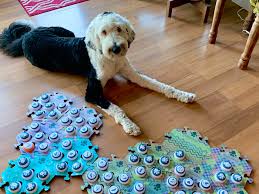Why does my cat love lettuce? If your cat loves lettuce and greens, these can be a great source of water, bulk, and nutrients. In my experience, some cats crave these greens and some couldn’t care less.
How much lettuce can a cat eat? A good rule of thumb is to begin by offering a tiny piece of lettuce the size of your fingernail. Once you know that your cat can cope with lettuce without any adverse signs, you can try increasing the amount. However, even if they enjoy it, it’s best not to give more than four or five small pieces at a time.
What leafy vegetables can cats eat? Superb vegetables to offer your cat are chopped carrots, peas, frozen corn, broccoli florets, green beans, zucchini, lettuce, spinach, winter squash, and pumpkin. This produce should be cooked (steamed is best) since felines, just like us humans, lack a sufficient way to break down plant cell walls.
Can cats have iceberg lettuce? Iceberg lettuce: One of the most common lettuce varieties, iceberg lettuce, is safe for your cat. It has little nutrition but it does have a high water content. It’s safe in small amounts, but too much can cause diarrhea in your cat from the high-water content.
Why does my cat love lettuce? – Additional Questions
Can cats have cucumbers?
Not all cats like vegetables, and even fewer like fruits (felines can’t taste sweet flavors). But they are a rich source of vitamins, and they’re loaded with fiber and water to help with digestion. Try fresh cucumber or cantaloupe, steamed broccoli, or asparagus.
Are leafy greens good for cats?
Packed with nutrients, leafy greens can give your dog or cat’s diet a colorful and healthy boost.
Can cats have carrots?
While cats, unlike humans, don’t require veggies in their diet, they can be a safe and healthy treat. Your cat might nosh on some cooked carrots, but avoid raw ones as they may be a choking hazard.
Can cats eat cheese?
Cheese is not a natural part of a cat’s diet. Cats are obligate carnivores, which means they can only get necessary nutrients from meat. But even though cheese is also high in protein, it can upset a cat’s delicate digestive system. The reason for this is that cats don’t tolerate dairy very well.
Can cats eat celery?
Yes, cats can eat celery! However, celery cannot replace a well-balanced diet. Pet parents should consider celery an additional treat rather than a significant part of a cat’s routine diet. As obligate carnivores, meat-based diets for cats are a must.
Can cats eat bacon?
The quick answer: Yes, cats can eat bacon sparingly, but it is not recommended to feed bacon to your cat regularly. We all can agree that bacon is delicious, salty, crunchy, and one of the best parts about Sunday brunch.
Can cats have scrambled eggs?
Yes, cats can eat eggs. Fully cooked eggs are a great nutritional treat for cats. Eggs are packed with nutrients, like amino acids, which are the building blocks to protein, and they’re also highly digestible. Scrambled, boiled, however you choose to prepare them is fine.
Can cats eat peanut butter?
Although many cats love the taste of this salty and sweet spread, cat parents should avoid giving their feline friends peanut butter. It provides no nutritional value and, more importantly, certain ingredients, like fat and added artificial sweeteners, can be harmful or even toxic to cats.
Can cats eat popcorn?
Popcorn and corn aren’t toxic to felines, but they can be a health hazard if combined with wrong ingredients or served in massive portions. You should be especially cautious with readymade popcorn often loaded with harmful additives and hydrogenated oils.
Can cats eat ice cream?
Most cats are lactose intolerant
This means that consuming lactose—which milk and most kinds of ice cream contain—can lead to upset stomach, diarrhea, and vomiting in cats.
Can a cat eat spaghetti?
The basic ingredients of pasta—flour, water, and eggs—are typically okay for cats to eat. The shape of the pasta also doesn’t matter due to it’s soft texture, so whether your preference is rotini or linguine, it should be fine for your cat to sample.
Can cats eat pizza?
The short answer is, well, sort of, but mostly no. While pizza might be okay in some cases for your cat to snack on, it’s not a food that provides vital feline nutrition, and you can also risk sneaking in toppings or seasonings that might make your kitty ill.
Can cats eat french fries?
French fries can be toxic to cats (and dogs) if they eat them raw. Cooked French fries do not necessarily pose a toxic threat to cats, but due to their high carbohydrate load and the fact that they are fried, they are not the best choice as a snack for your cat.
Can cats have tomatoes?
The short answer is, “Not recommended.” According to ASPCA, tomatoes have something called solanine which is not only toxic to cats, it’s also harmful to horses and dogs. If the stems and leaves are ingested, they are at risk of stomach issues, lethargy, slower heart rate and more.
Are pineapples poisonous to cats?
Can Cats Eat Pineapple? Yes, cats can eat pineapple, with a few stipulations. This tropical treat is high in fructose and contains several vitamins (A, B6, folate, C) and minerals (magnesium and potassium). Fresh pineapple is preferred over canned, which is often packed in a sugary syrup that may contain preservatives.
Can cats eat banana?
The simple answer is yes — but while bananas aren’t toxic to cats, they can cause digestive issues. Many “people foods,” like chocolate, are toxic for cats and other pets, and they should be avoided altogether.
Can cats eat potatoes?
Yes, cats can eat potatoes occasionally, but not just any kind. Peeled and roasted potatoes, prepared without any fats, spices or salt are the best option for your pet.
